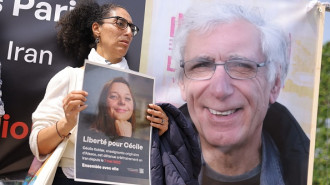Sudan says it won't retaliate over Ethiopia's Renaissance Dam filling, urges 'cooperation'
Sudan on Thursday denied reports that it would take action after Ethiopia filled its Grand Ethiopian Renaissance Dam (GERD), instead urging "cooperation" between impacted countries.
Negotiations between Egypt, Ethiopia and Sudan over the Nile river mega-dam, which Ethiopia began building in 2011, have been at a standstill for more than a year.
In a statement carried by Arabic-language media, the Sudanese irrigation and resources ministry stressed the "necessity of cooperation and coordination", and said Ethiopia and downstream Egypt and Sudan needed to reach a binding agreement over the filling and operation of the dam.
Egypt and Sudan view the GERD as a threat, saying it could deprive them of essential Nile water, while Ethiopia deems it essential for its electrification and development.
Sudan has sought technical agreements with Addis Ababa to ensure that Sudanese dams are not negatively impacted by the dam.
Last week, the head of a Sudanese technical delegation, Mustafa Hussein, was quoted by local media as saying that Sudan would take "necessary action" if the filling of the GERD impacted Sudan's dams or other uses of the Nile river water supply.
The irrigation ministry said in its Thursday statement the reported comments were "misleading and incorrect information".
Despite the lack of movement in trilateral talks, Ethiopia has continued building the GERD.
Addis Ababa said last week that it had completed the third filling of the dam.
A day earlier, it said it had launched power production from the dam's second turbine.
Egypt, which depends on the Nile for about 97 percent of its irrigation and drinking water, last month protested to the UN Security Council about the third refilling.





 Follow the Middle East's top stories in English at The New Arab on Google News
Follow the Middle East's top stories in English at The New Arab on Google News

![The law could be enforced against teachers without prior notice [Getty]](/sites/default/files/styles/image_330x185/public/2178740715.jpeg?h=a5f2f23a&itok=xMdFOAIF)
